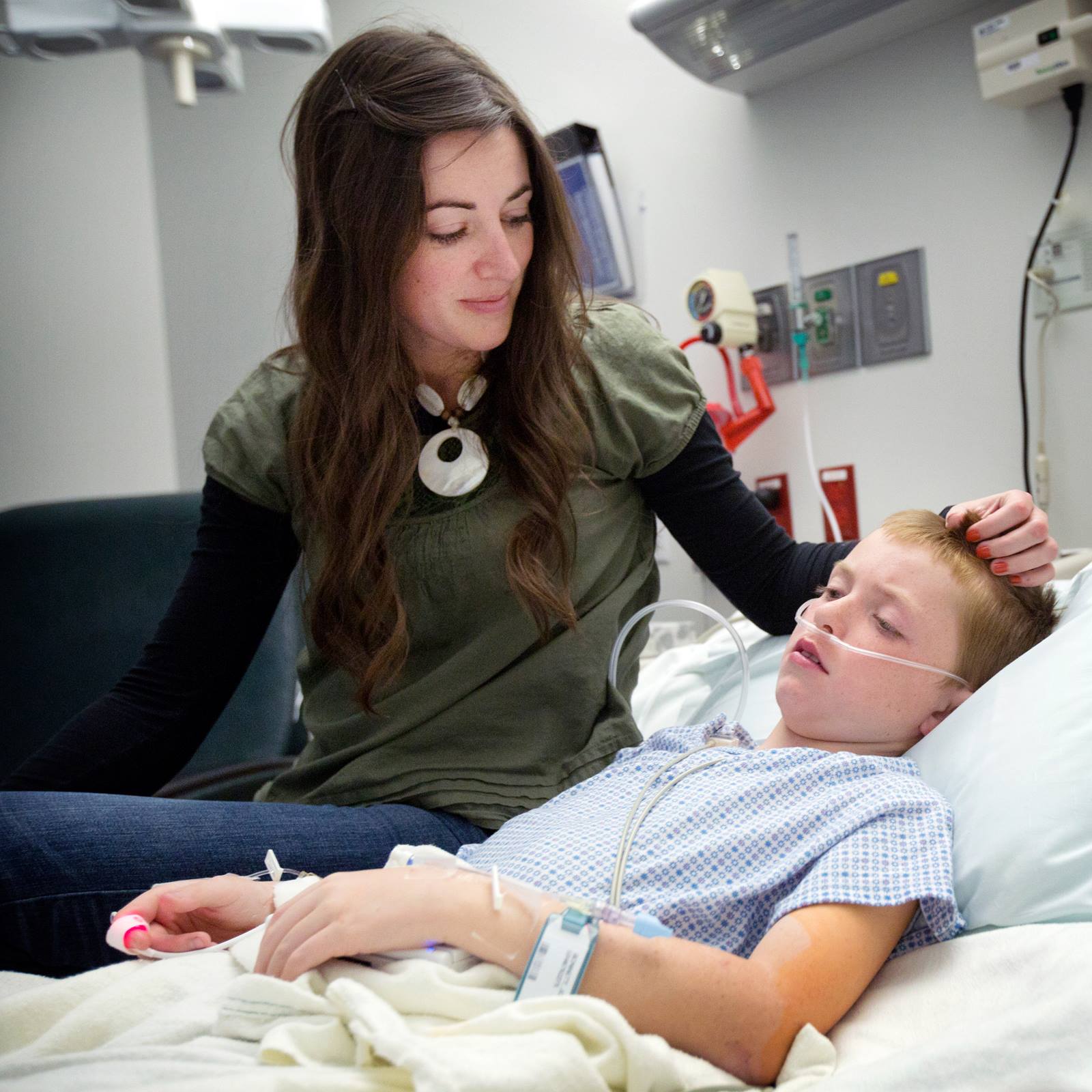
- Air Care Alliance. ...
- American Transplant Foundation. ...
- Help Hope LiveHelp Hope Live is an online platform helping families create individual pages to support community-based fundraising for loved ones with unmet medical related expenses.
- Izzie's Gifts of Hope Foundation. ...
- Liver Health Connection.
Do transplant patients qualify for disability?
Those who received an organ transplant will qualify for disability benefits for 12 months following their transplant. After 12 months, the SSA will reevaluate the claim. If a recipient is still too ill to be able to work, they may be able to continue to receive disability benefits.
What do social workers do for transplant patients?
As a member of a transplant team, the social worker provides patient educationeducationTeacher education or teacher training refers to the policies, procedures, and provision designed to equip (prospective) teachers with the knowledge, attitudes, behaviors, approaches, methodologies and skills they require to perform their tasks effectively in the classroom, school, and wider community.https://en.wikipedia.org › wiki › Teacher_educationTeacher education - Wikipedia and emotional support, is responsible for referrals to community agencies, coordinates patient care with other team members, and assists with concrete services.
What is transplant program?
A transplant program is defined as a component within a transplant hospital that provides transplantation of a particular type of organ to include; heart, lung, liver, kidney, pancreas or intestine. All organ transplant programs must be located in a hospital that has a Medicare provider agreement.
Does Medicare cover lodging for transplant?
Original Medicare covers travel and lodging only for Medicare-approved organ transplants when the Medicare Advantage plan chooses to provide services at a Medicare-approved transplant facility at a distant location that is farther away than the normal community pattern of care for transplant services.
Which hospital does the most transplants?
Mayo Clinic Hospital Arizona had the most transplants that came from deceased donors that year, followed by the University of California-Los Angeles Medical Center.
Does healthcare cover organ transplants?
Your recipient's insurance typically covers all medical services related to your organ donation, including your evaluation, hospitalization, surgery, follow-up care and treatment of any surgical complications.
How many transplant centers are there in the US?
There are more than 250 Transplant Centers in the U.S. and four in Donor Alliance's service area.
Do transplant patients qualify for Medicare?
Medicare may cover transplant surgery as a hospital inpatient service under Part A. Medicare covers immunosuppressive drugs if the transplant was covered by Medicare or an employer or union group health plan was required to pay before Medicare paid for the transplant.
What is the average MELD score for liver transplant?
Urgency of using extended criteria organs He also explains how the liver transplant surgical team expedited end-stage liver disease transplants for a large health care system's patients: Despite average 20 to 25 MELD scores, patients waited two to three years for transplant at large Southwestern centers.
How long can you stay on Medicare after a kidney transplant?
36 monthsIf you're eligible for Medicare only because of permanent kidney failure, your Medicare coverage will end: 12 months after the month you stop dialysis treatments. 36 months after the month you have a kidney transplant.
Is the TV show transplant coming back in 2022?
TORONTO (August 8, 2022) – CTV announced today that TRANSPLANT is back for a riveting third season airing Fridays at 9 p.m. ET/PT on CTV, CTV.ca, and the CTV app, beginning September 23.
How many seasons of transplant are there?
3Transplant / Number of seasons
Is transplant based on a true story?
“Transplant” is based on a true story. John Hurley (Kevin Dobson) is street‐tough Irish‐Catholic who has risen from a Brooklyn tenement to job with his name on the door. He lives in relative comfort in suburbia with wife, three children and a car.
Is Transplant coming back?
August 8, 2022 9:30 a.m. Dr. Bashir “Bash” Hamed (Hamza Haq) and the crew at York Memorial Hospital are back with more drama and new doctors this fall. CTV just announced that Transplant will return for season three Friday, September 23 at 9pm ET/PT.
What is the National Foundation for Transplants?
National Foundation for Transplants (NFT)NFT offers hope and help to transplant patients and their families by providing fundraising expertise, advocacy, promoting organ and tissue donation, and supporting innovative solutions for lifesaving treatment.
Is Financial Assistance for Transplant Patients Available?
Organ transplants can be an expensive surgical procedure. The reality is that for many transplant patients and candidates, it is not feasible to pay for the full cost of transplant surgery or the additional postoperative costs out of pocket. Fortunately, there are resources and transplant patient financial aid programs they can turn to that can help pay for their procedure or aftercare.
What is the National Marrow Donor Program?
With funding generously provided to the Be The Match Foundation®, the National Marrow Donor Program®/Be The Match® can provide financial help for patients experiencing a crisis event that is directly impacting post-transplant care. The Ira and Diana Riklis Crisis Grant can give a limited number of qualified patients a grant up to $10,000 depending on need.
How long after NMDP transplant can you be treated?
Had an NMDP/Be The Match facilitated related or unrelated donor transplant, is at least 90 days post-transplant and actively being treated for chronic GVHD
What is a patient/family emergency?
Patient/family has an emergency or crisis event that is directly impacting post-transplant care
What are out-of-pocket costs related to medical care?
Out-of-pocket costs related to medical care, such as copays for prescriptions, clinic visits and dental work
What is the American Transplant Foundation?
The American Transplant Foundation is the only nonprofit in the country that provides emotional, educational, and financial support to living donors, transplant recipients, and their families regardless of their legal status.
What to do if you lose wages for living donors?
Have your social worker or coordinator apply for financial assistance (lost wages for living donors, access to medication for recipients).
What is a transplant aide?
Provides access to transplantation for potential candidates who must travel to the hospital for evaluation and need help with the fuel and lodging costs associated with travel.
What is financial assistance?
Provides financial assistance alleviating a crisis situation or offering transitional support for emergency needs that are not considered medical in nature but have a direct impact on the survival and health of the transplant recipient.
Providing advocates for your journey
Each patient who requests NFT assistance with transplant expenses is assigned a Fundraising Consultant and a Patient Advocate. The Patient Advocates provide the education and training the patient – and patient family members – need to understand NFT assistance.
The transplant journey
Learn the step-by-step journey patients travel during the pre- and-post-transplant process and the many ways NFT can help.
Let us help you
Every year, more than 4,000 people reach out to NFT for help to cover the high cost of transplant-related expenses.
What is the key to organ transplant success?
Immunosuppressive medications have been the key to the success of organ transplantation, but the question of how to pay for this expensive therapy has plagued the United States Congress for the past quarter century. Progress to date includes:
When did the National Organ Transplant Act start?
In 1984, Congress passed the National Organ Transplant Act, which authorized payment for immunosuppressive medications for one year after Medicare covered renal transplantation.
How often do you have to reapply for a transplant?
The transplant center must initiate the application and must re-apply every three to six months. Although it appears at first glance that there are many programs to help patients, most have limited access, tough requirements and many are only temporary. Many low-income jobs earn too much to qualify for financial help, yet earn too little to afford private insurance.
How much does immunosuppressive medication cost?
Co-payment for the expensive drugs can be sizable. The average cost of immunosuppressive agents may be as high as $10,000 - $14,000 per year for kidney patients. For patients with low family income, these medications and health costs directly compete with the provision of other basic necessities such as food, clothing and shelter.
Does AOTA offer free prescriptions?
AOTA has recognized the need to assist transplant patients with the cost of their immunosuppressant drug therapy. We offer prescription assistance at no charge. Simply click on the link www.aotarx.com and enroll for free and download your free prescription card.
Do you have to take immunosuppressive medication for organ transplant?
Although dramatic improvements have occurred in organ transplantation, all patients must take immunosuppressive medications, except the rare recipient of a transplant from an identical twin.
Is organ transplantation expensive?
Organ transplantation is an expensive therapy, even for patients with adequate health insurance. Costs may include travel, lodging, and meals whenever the patient comes to the transplant center for evaluation or follow-up. Out-of-pocket medical expenses usually include premiums, deductibles and co-payments for health insurance. Patients who are unemployed due to illness and no longer qualify for employer sponsored insurance are forced to pay the full cost of insurance premiums if they remain eligible.
